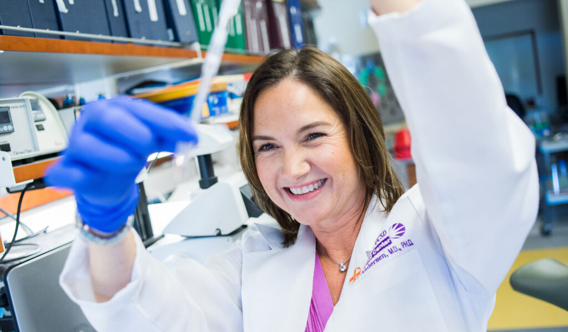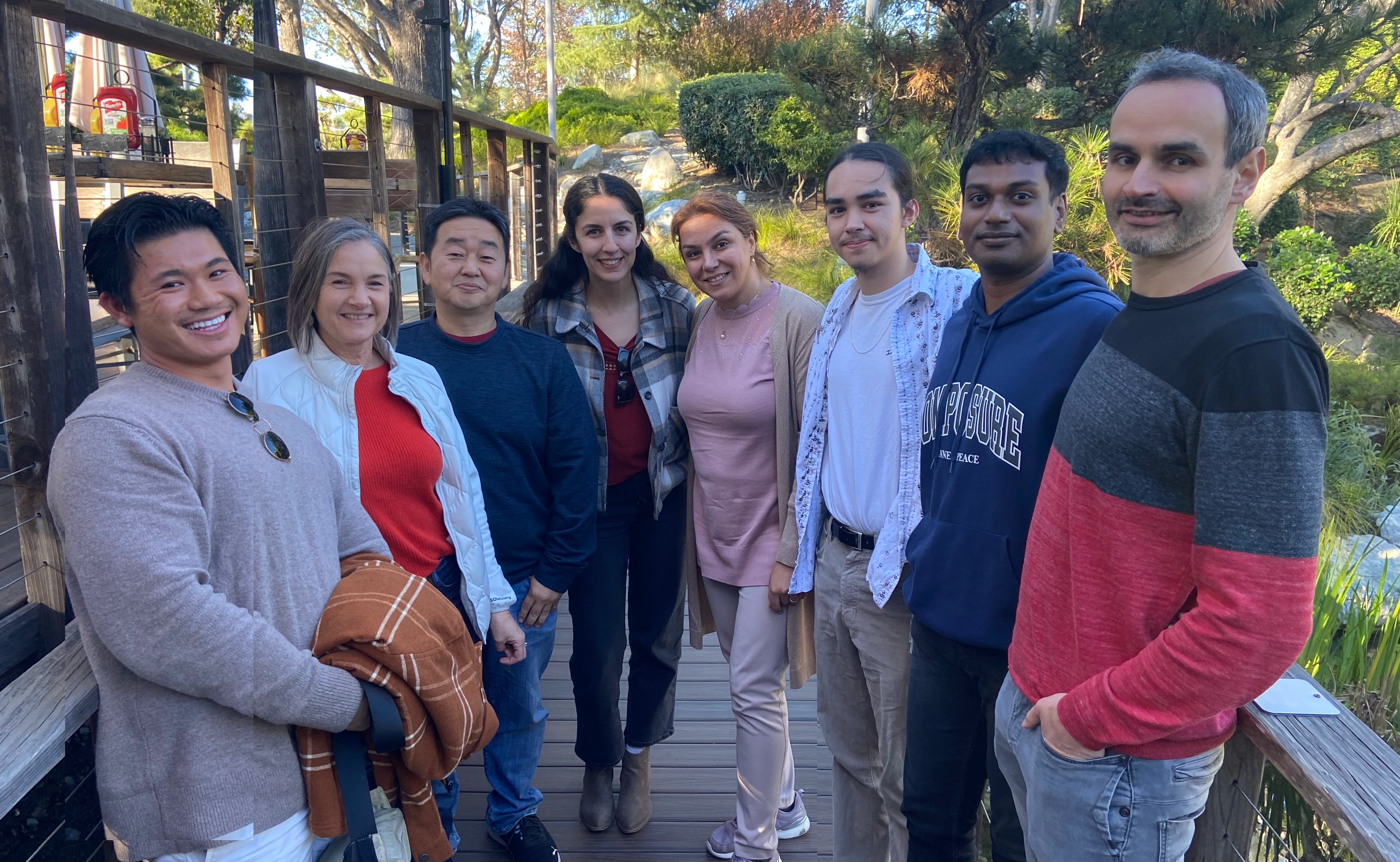Heidi Cook-Andersen, MD, PhD and Lab Fuse New-Era Approaches & Decades-old Questions to Illuminate the Earliest Stages of Mammalian Development

Dr. Heidi Cook-Andersen Laboratory, Reproductive Endocrinology & Infertility
It might surprise you to know that we understand MUCH more about the earliest stages of life for worms, flies, and frogs than we do for our own development. Or for any mammal, in fact. This is in large part because the techniques required to answer long-standing questions about these early stages require many more oocytes or embryos than what can be obtained for study in mammalian systems. Luckily, that is shifting, and the Cook-Andersen laboratory is working to help lead this exciting new era in development and reproductive biology.
Heidi Cook-Andersen, MD, PhD, is a physician-scientist and Assistant Professor with a dual appointment in the Departments of Obstetrics, Gynecology, and Reproductive Sciences and the Department of Molecular Biology at the University of California, San Diego. She completed her clinical trianing in Obstetrics and Gynecology at the University of Colorado Health Science Center and subspecialty training in Reproductive Endocrinology and Infertility here at UC San Diego. Her basic science training in Molecular Biophysics and Biochemistry was completed at Yale University as a Howard Hughes Predoctoral Fellow. After completing her training, Dr. Cook-Andersen began her independent research program as an NIH Women's Reproductive Health Research Scholar and Burroughs Wellcome Fund CAMS Scholar. Most recently, she was honored with the Mentor Award by the School of Biological Sciences. At the Sanford Consortium for Regenerative Medicine, research in the Cook-Andersen Laboratory combines these areas of expertise to investigate the earliest stages of development in mammals with the long-term goal to advance the diagnosis and treatment of infertility.
UC San Diego Cook-Andersen Lab Team

Research Goals: Navigating Life's Earliest Challenges
With the goal to one day bring discoveries back to the IVF clinic, research in the Cook-Andersen lab is focused on understanding the molecular mechanisms that underlie the two earliest challenges faced by a new embryo. The mechanisms that drive these critical transitions are key to understanding what it takes to make a "good" oocyte or embryo – i.e., the factors that determine developmental failure and success.
Challenge 1: The oocyte-to-embryo transition
The first challenge is completion of the transition from oocyte to embryo, which ~50% of human embryos fail to fully complete as evidenced by early embryo developmental arrest (Figure 1). Surprisingly, these earliest stages of development occur in the absence of new transcription. Transcription is globally silenced in the fully grown GV oocyte and does not fully resume until embryonic gencome activation (EGA) in the late 2 cell embryo in mice and even later, at the 4-8 cell stage, in humans. Without transcription, regulation of gene expression depends on post-transcriptional mechanisms. However, the molecular mechanisms required to control gene expression – and the specific factors and pathways they regulate – to successfully navigate this transition remain poorly understood.
How is transcription globally silenced in the oocyte?
How is gene expression activated and repressed to drive develoment without transcription?
How is transcription reactivated for just the right genes in the new embryo?
These are a few of the questions the Cook-Andersen lab is currently working hard to answer.
Challenge 2: Implantation of the human blastocyst
Embryos that successfully complete the oocyte-to-embryo transition and develop to the blastocyst stage after 5 days (Figure 2) face a second major challenge as 50% or more of these embryos will fail to successfully implant in the uterus to initiate a pregnancy. This is true even in women less than 35 years old. However, the molecular factors and pathways required for successful implantation of the human embryo remain largely "a black box" and challenging to study. The Cook-Andersen lab is working to fill this important knowledge gap using both human and mouse embryo models. Current projects also involve collaborations with Drs. Mana Parast and Louise Laurent to develop stem cell models of implantation-competent trophectoderm cells as well to develop a stem cell-based embryo model to examine the role and mechanism of candidate factors they are identifying in embryo studies. Because technical and ethical limitations with the study of human embyos significantly limit advances in the field, stem cell models such as these representing lineages within the blastocyst are critically needed.
Current Investigation Meets Innovation
“Events during the earliest stages of development are highly conserved evolutionarily. However, there are, of course, also critical differences in the details of these events in mammals. In particular, the specific factors and pathways that regulate these events are much less conserved between organisms. So, despite the challenges, it is essential to uncover the mechanisms that drive these key developmental events in mammals if we want to make advances in the clinic.”
— Heidi Cook-Andersen, MD, PhD
The analyses necessary to make major advances in our understanding of these early stages in mammals have long been precluded by the small number of oocytes and embryos available for study. To meet this challenge, the Cook-Andersen lab is working to adopt and adapt cutting-edge, genome-wide approaches to study RNA dynamics, transcription regulation, epigenetic modifications, and chromatin structure using an extraordinarily low number of cells. These new approaches allow them to address decades-old questions in mammalian development and to work to improve embryo culture, embryo selection, and IVF success.
Recent Discoveries from the Lab
Over the last few years, the Cook-Andersen lab has deepened our understanding of the molecular mechanisms controlling gene expression in cell fate decisions and development in mammals with these impactful discoveries:
Factors critical for the oocyte-to-embryo transition:
Factors critical for successful embryo implantation:
UPF2-dependent RNA decay is critical for expansion of the pluripotent epiblast and successful implantation of the blastocyst (in collaboration with the Wilkinson lab)
Thank you, Dr. Cook-Andersen Lab for your inspiring state-of-the-art science and dedication to advancing our basic understanding of early development and infertility treatment for our patients. To explore more visit: Cook-Andersen Laboratory and research publications.

